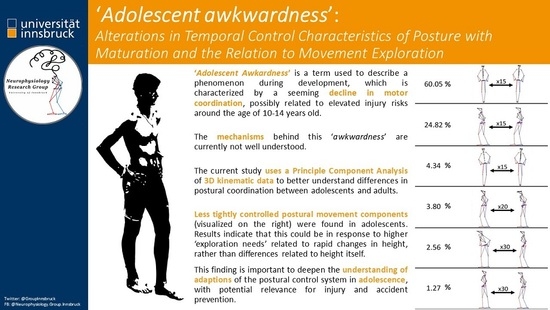Jul 17, 2015 At the heart of Catching Fire lies the groundbreaking new theory that the habit of eating cooked rather than raw food made us human. More than language, emotional intelligence, or the opposable thumb, the mastery of fire created us. Once our ancestors began cooking their food, the human digestive tract began to shrink and the brain to grow. Oct 11, 2016 Catching Fire: How Cooking Made Us Human - Kindle edition by Wrangham, Richard. Download it once and read it on your Kindle device, PC, phones or tablets. Use features like bookmarks, note taking and highlighting while reading Catching Fire: How Cooking Made Us Human.
- Catching Fire How Cooking Made Us Human Pdf Download Slide
- Catching Fire How Cooking Made Us Human Pdf Download Free
- You can write a book review and share your experiences. Other readers will always be interested in your opinion of the books you've read. Whether you've loved the book or not, if you give your honest and detailed thoughts then people will find new books that are right for them.
- Mar 12, 2020 Catching Fire How Cooking Made Us Human by Richard Wrangham available in Hardcover on Powells.com, also read synopsis and reviews. A startling new theory that the invention of cooking led to the creation of the human species.
| Author | Richard Wrangham |
|---|---|
| Country | UK |
| Language | English |
| Genre | |
| Publisher | Profile books |
Publication date | September 2009 |
| Media type | Print (Paperback) |
| Pages | 320 |
| ISBN | 978-1-84668-285-8 |
Catching Fire: How Cooking Made Us Human (2009)[1] is a book by BritishprimatologistRichard Wrangham, published by Profile Books in England, and Basic Books in the USA. It argues the hypothesis that cooking food was an essential element in the physiological evolution of human beings. It was shortlisted for the 2010 Samuel Johnson Prize.
History of the idea[edit]
Eighteenth-century writers noted already that 'people cooked their meat, rather than eating it raw like animals'. Oliver Goldsmith considered that 'of all other animals we spend the least time in eating; this is one of the great distinctions between us and the brute creation'. In 1999 Wrangham published the first version of the hypothesis in Current Anthropology.[2] A short outline of the hypothesis was presented by John Allman (2000)[3] presumably based upon Wrangham (1999).
Overview[edit]
Humans (species in the genus homo) are the only animals that cook their food and Wrangham argues Homo erectus emerged about two million years ago as a result of this unique trait. Cooking had profound evolutionary effect because it increased food efficiency which allowed human ancestors to spend less time foraging, chewing, and digesting. H. erectus developed a smaller, more efficient digestive tract which freed up energy to enable larger brain growth. Wrangham also argues that cooking and control of fire generally affected species development by providing warmth and helping to fend off predators which helped human ancestors adapt to a ground-based lifestyle. Wrangham points out that humans are highly evolved for eating cooked food and cannot maintain reproductive fitness with raw food.[4]
Reception[edit]

Positive[edit]
Book reviewers gave Catching Fire generally positive reviews. The New York Times called it 'a rare thing: a slim book - the text itself is a mere 207 pages - that contains serious science yet is related in direct, no-nonsense prose',[5] and the Telegraph (UK) called it 'that rare thing, an exhilarating science book'.[6]
Negative[edit]
Critics of the cooking hypothesis question whether archaeological evidence supports the view that cooking fires began long enough ago to confirm Wrangham's findings.[7] The traditional explanation is that human ancestors scavenged carcasses for high-quality food that preceded the evolutionary shift to smaller guts and larger brains.[8]
Further reading[edit]

- Review by Pat Shipman in Nature 459, 1059-1060 (25 June 2009)
- Frances D. Burton (2009) Fire: The Spark That Ignited Human Evolution, University of New Mexico Press, ISBN978-0-8263-4646-9

See also[edit]
References[edit]
- ^Richard Wrangham (2009) Catching Fire: How Cooking Made Us Human, Basic Books, ISBN978-0-465-01362-3
- ^Wrangham, Richard W.; Jones, James Holland; Laden, Greg; Pilbeam, David; Conklin‐Brittain, NancyLou (Dec 1999). 'The Raw and the Stolen'. Current Anthropology. 40 (5): 567–594. doi:10.1086/300083. ISSN0011-3204. PMID10539941.
- ^John Allman (2000) Evolving Brains, Scientific American Library, page 194.
- ^Garner, Dwight (2009-05-26). 'Why Are Humans Different From All Other Apes? It's the Cooking, Stupid'. New York Times. Retrieved 2009-06-12.
- ^Dwight Garner, 'Why Are Humans Different From All Other Apes? It's the Cooking, Stupid', New York Times, May 26, 2009
- ^Simon Ings, 'Catching Fire: How Cooking Made Us Human by Richard Wrangham: review', the Telegraph, October 4, 2009
- ^Pennisi, Elizabeth (March 26, 1999). 'Human evolution: Did Cooked Tubers Spur the Evolution of Big Brains?'. Science. 283 (5410): 2004–2005. doi:10.1126/science.283.5410.2004. PMID10206901. Archived from the original on 2011-02-01.
- ^Pennisi: Did Cooked Tubers Spur the Evolution of Big Brains?Archived February 1, 2011, at WebCite
Catching Fire How Cooking Made Us Human Pdf Download Slide
Log in with Open Athens, Shibboleth, or your institutional credentials.
If you have previously obtained access with your personal account, Please log in.
Catching Fire How Cooking Made Us Human Pdf Download Free
Item saved, go to cart- Details
- Unlimited viewing of the article PDF and any associated supplements and figures.
- Article can not be printed.
- Article can not be downloaded.
- Article can not be redistributed.
September/October 2010
Pages 187-199